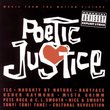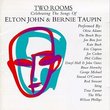| All Artists: Esther Phillips Title: From a Whisper to a Scream Members Wishing: 1 Total Copies: 0 Label: Sony Release Date: 10/25/1990 Genres: Blues, Jazz, Pop, R&B Styles: Vocal Blues, Regional Blues, West Coast Blues, Soul Number of Discs: 1 SwapaCD Credits: 1 UPC: 074644093520 |
Search - Esther Phillips :: From a Whisper to a Scream
 | Esther Phillips From a Whisper to a Scream Genres: Blues, Jazz, Pop, R&B |
CD DetailsSimilarly Requested CDs
|
CD ReviewsYES_ I have it on the box NOW and........ Kevin Hennessey | TheTop Right Hand Corner of the US Map! | 10/21/2004 (5 out of 5 stars) "of course it a GREAT piece of happytime blues.jazz/rock/fusion for everyone sonically inclined towards perfection!What kills me is she isn't even listed in The All Music Guide' either.She never did put out a lot of lp's Kudu was her major labelwww.collectable-records.ru/labels/E_M/kudu/2s.htm shows she did record 45's but who has a clue how many? One of the premiere r&b vocalists of the 1950s through the 1980s, `Little Esther' Phillips possessed both great talent and even greater demons. When she was an adolescent, her parents divorced, and she was forced to divide her time between her father in Houston and her mother in the Watts area of Los Angeles. Although she was brought up singing in church, she was hesitant to enter a talent contest at a local blues club, but her sister insisted and Esther complied. The young dynamo wowed the club owner, bluesman Johnny Otis, and he immediately signed her to his roster of performers. Esther would record on Otis's record label, and perform in his revue. Otis gave her the moniker `Little Esther' that would follow her throughout her career. Esther Phillips' voice had a unique nasal sound that delighted audiences with its distinct phrasing and exacting diction. She scored many r&b hits in the early 1950s, but soon became disillusioned with Johnny Otis, finally walking out when her refused her request for a salary increase. Through the remainder of the decade, Esther recorded for various record companies without success. She returned to Houston to live with her father at this time, and to deal with the greatest challenge in her young life -- her drug dependency. Apparently, the stress of life on the road with hardened blues performers, and her insecurities had led her to indulge in heroin as an escape. After rebounding from her dark days, Esther worked small nightclubs in the southwest, and was spotted by rising star Kenny Rogers, who loved her sound. He arranged a recording contract for her, and she released a hit country and western album. She dropped the adjective `Little' from her name then. Soon after she signed with Atlantic records and released a series of records with only modest success. They dropped her in 1967, and her drug dependency deepened. After a stint in a rehab hospital, Atlantic re-signed Esther, and soon released a live album consider to be among her best. The label attempted to squeeze Esther into a pop singer mold, but she wasn't comfortable in the role, so again they cut her free from her contract. In 1971 jazz maestro Creed Taylor signed her to his Kudu label, and this is where Esther's best work can be found. Soon she was singing in high-profile venues along with big-name talent, and international jazz festivals. In 1975, she scored her biggest hit single since her early days with Johnny Otis with the early disco track `What A Diff'rence A Day Makes,' a remake of a Dinah Washington standard. Soon restless, Esther left Kudu records for another label in 1977, but was never able to duplicate her success. Depression and insecurity again hounded her and she again turned to heroin, and this time alcohol. She released a few records on small independent labels with little success or notice. The years of addiction had taken a huge toll on `Little Esther' Phillips and she succumbed to liver and kidney failure in Los Angeles in August of 1984." Red-hot Blues!!! Beverly Praiswater | 06/09/2005 (5 out of 5 stars) "Esther Phillips could hold her own against any blues singer, male or female. She personifies the blues. Having visited the rougher side of life, "Home Is Where The Hatred Is" is sung as though Esther's soul is turned inside-out. Written by Gil Scott-Heron, it is achingly beautiful. The title song "From A Whisper To A Scream" is one of the rawest blues tunes ever! Written by blues great Allen Toussaint, he must have been thrilled with Esther's rendition. Esther's vocal has funky tones in "Til My Back Ain't Got No Bone" accompanied by a soulful sax solo. Her vocal expression is perfection! You can feel the wanting in Esther's heavy vocal "Baby, I'm For Real", a ballad which was written by Marvin Gaye. Nothing can compare to sultry Esther singing "Your Love Is So Doggone Good". This steamy number is so thick you could cut it with a knife. When Esther sings "How Blue Can You Get?" written by Leonard Feather she IS about as blue as it gets. Full-bodied blues, Esther's hot interpretation of "Scarred Knees" is thankfully over six minutes long. "Brother, Brother" is a soulful tribute like none other for its songwriter, Carole King. Completely tender, Esther's artistry is very fine when she sings "Don't Run And Hide". "A Beautiful Friendship" is a mature and beautiful ending for the album. Originally recorded as an LP in 1971, the arrangements contained bass, drums, guitar, percussion, organ, piano, trumpet, flugelhorn and three saxophones: alto, tenor, baritone. In addition are such seldom used instruments (by today's standards): trombone, violin, viola, cello, and harp. This alone tells you how full-bodied these blues arrangements are. This album is the definitive example of what a blues singer is all about. So if you love the blues, and you ain't got this one, you better add it to your collection!!" Why hasn't this been remastered re released? G. Aldrich | Philippines | 08/02/2004 (5 out of 5 stars) "Esther Phillips has a phenomenal voice, her vocal talents can easily compare to Aretha, Sarah Vaughan or even one of the more recent nu soul artists like Erykah. I was introduced to her music via a UK based DJ Gilles Peterson who has a habit of eductaing his audience to soul and jazz gems of yesteryear as well as hot new acts.
This album is a crate diggers jewel, hard to come by and expensive when found. Aretha gave her grammy to Esther as she felt it was the true winner that year. And yet it is still not readily available. For an idea of what great soul jazz music Esther made during her Kudos era check out the Anthology collection or the Kudos years or the recently re released What a difference a day makes. If you have never heard her before get ready for an aural treat the likes of which you never imagined possible in a non sexual context... hold on! thats over kill, no one can sing that good... She is great though, a great artist who deserves more exposure, If you know what i am talking about.. post here so we can consumer pressure a re release of this well crafted emotive representation of a tortured artist at her best...." |










